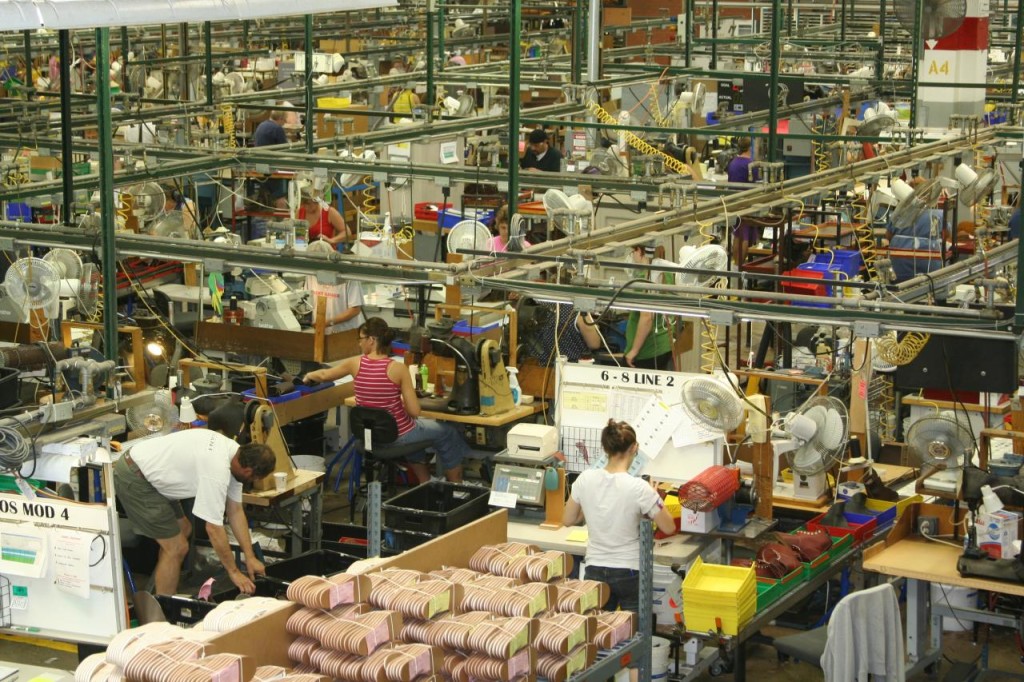Readings: Genesis 1:26-2:3 | Psalm 90 | 1 Thessalonians 4:1b-2, 9-12 | Matthew 6:31-34
One of the things that I remember vividly about my childhood is how hard my parents worked. My Dad worked more than one job at a time for several years. And in his main job, he was with the company for well over forty years, finally retiring from the company he worked for since his late teens. My mother, too, worked outside the home, and did on a part-time basis until the pandemic started. They encouraged me to work as well, and the experience of the work I did in my late teens is something that I carried with me throughout my pre-seminary work years, and continue, really, to benefit from to this very day. And that’s how work is supposed to be: participation in God’s creation, enhancing our human dignity, bringing forth our gifts, and helping us to be better people. Work should also help us to sustain our lives and our families, and to provide for their needs, including health care and retirement. The Church has consistently and loudly taught these truths about work ever since Pope Leo XIII’s ground-breaking encyclical Rerum Novarum, published in 1891.
Today, we’ve gathered to celebrate and bless human labor. Human labor is a cornerstone of our society and our world, dating all the way back to the creation of the world, as today’s first reading shows us. Indeed, our labor is a participation in the ongoing creation of the world, and is one of the strongest ways that we can be in communion with our Creator God. We know that, at the completion of the creation of the world and everything in it, God sanctified the whole of it through rest. That’s an important point that I think we maybe don’t get the way we should.
Today is an opportunity to take a step back and look at our working and our resting. We know that we don’t get enough rest. We are sleep deprived, we take working vacations, we very often don’t take all the vacation we’re allotted, and some don’t take a vacation at all. Even our children are so over-scheduled that they are sleep deprived as they go from one activity to the next, day after day. And so our lives are out of balance and I think, very often, we don’t do our best work when we’re working.
Jesus tells us in today’s Gospel that this kind of thing is just crazy. Worrying about work isn’t going to add a single moment to our lifespan. In fact, it will more likely reduce them. We are told very clearly: “Do not worry about tomorrow; tomorrow will take care of itself. Sufficient for a day is its own evil.” By “evil” here, Jesus doesn’t mean something sinister and dark, but just the daily worries and misfortunes that we deal with all the time.
We are certainly required to work hard and always give the best that we have to our employers or employees and coworkers. That’s a matter of justice. We are also required to provide for our families and maintain a home for our loved ones. That’s a matter or charity. Work is sacred and always has been, because, as the Genesis reading today shows us, work was instituted by God who told us to fill the earth and subdue it, having dominion over every living thing. We work because it is a sharing in what we were created for, the very imitation of God. But there is also that matter of balance. And we do have to step back and realize that God did indeed sanctify the whole of creation by blessing it with that seventh day, with that day of rest. And so we do our spiritual lives no favors when we ignore the commandment to observe the Sabbath through rest and worship. So much of our lives is consumed in labor; may we never fail to sanctify that labor by observing rest and worship.
I saw a social media post that said something to the effect that while you’re all playing and having barbecues on Labor Day, remember it’s not about that. It’s about the people that fought to create safer workplaces, fair wages, health care and other benefits. I mean, it’s a point well-taken, but I don’t think we have to be the party pooper and insist that parties and gatherings today are inappropriate. Actually, for those who are overworked and over-scheduled, we might need this day more than ever.
Labor Day is in fact a wonderful time to step back and look at the meaning of work. Labor Day reminds us that we don’t have permission to write off human labor as some kind of necessary evil or a commodity to be bought and sold. We are reminded that the economy exists for the good of people, not the other way around. We must truly venerate all labor, that of our own efforts as well as that of others. We must vigorously defend the rights and dignity of workers, particularly of the poor and marginalized. We must always offer all of this back to our God who created us to be co-creators with him. And we must rest. May we pray with the Psalmist this day and every day, “Lord give success to the work of our hands!”




You must be logged in to post a comment.